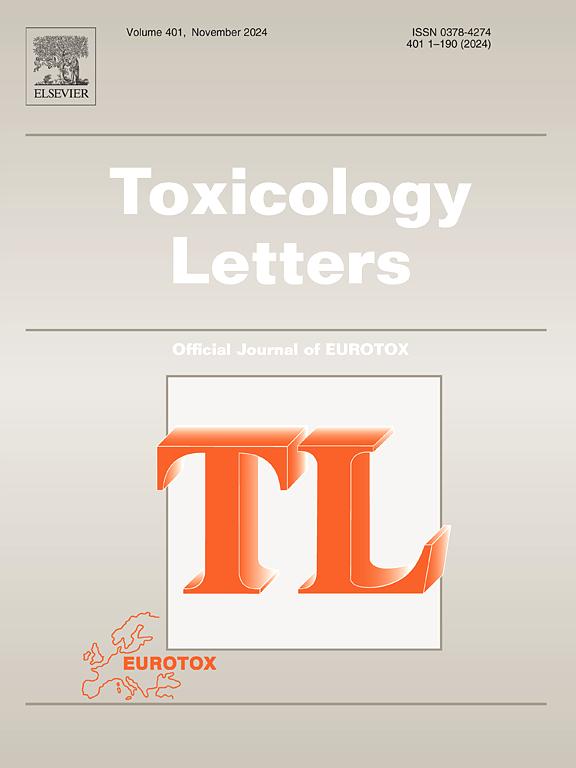生活方式对端粒长度的影响:探讨吸烟、吸电子烟和饮酒的影响
IF 2.9
3区 医学
Q2 TOXICOLOGY
引用次数: 0
摘要
健康老龄化是通过坚持有益的习惯和活动来促进的。尽管如此,对于年龄、性别、种族和民族在多大程度上影响生活方式和行为因素(如吸烟、吸电子烟和饮酒)与相对端粒长度(一种潜在的衰老生物标志物)之间的相关性,我们的知识有限。端粒是位于染色体末端的保护性dna -蛋白质复合物,其长度随着每次细胞分裂而减少,毒理学暴露可能会加速这种减少,导致基因组不稳定。因此,端粒长度(TL)被认为是细胞老化和与毒理学相关的累积DNA损伤的生物标志物。最近的发现表明,吸烟、吸电子烟和饮酒会通过氧化应激、炎症和DNA损伤等途径影响端粒长度。吸烟一直与缩短TL有关,因为吸烟者的白细胞端粒明显比不吸烟者短。吸烟产生活性氧,诱导端粒DNA断裂和持续炎症,加速端粒降解。最近的研究表明,电子烟也可能导致端粒侵蚀。电子烟气溶胶的有害副产品比烟草烟雾少;然而,仍然会产生氧化应激。细胞研究表明,电子烟蒸汽引起的DNA损伤和端粒功能障碍与传统吸烟相似。因此,电子烟使用者可能会经历与吸烟者相似的端粒缩短,但其程度仍在调查中。长期过量饮酒与端粒长度减少有关。与健康对照组相比,有酒精使用障碍的个体端粒长度显着减少,这一现象可能归因于乙醇产生的氧化应激和慢性炎症,而适度消费而不滥用似乎对端粒长度的影响微不足道。这些发现强调了端粒动力学作为与生活方式相关的细胞衰老指标的毒理学相关性,并强调了正在进行的研究确定因果关系和指导公共卫生行动的必要性。本文章由计算机程序翻译,如有差异,请以英文原文为准。
S01-03 The Impact of Lifestyle on Telomere Length: Exploring the Effects of smoking, vaping and alcohol consumption
Healthy ageing is promoted by the adherence to beneficial habits and activities. Nonetheless, there is limited knowledge on the extent to which – age, sex, or race and ethnicity influence the correlations between lifestyle and behavioural factors such as smoking, vaping, and alcohol intake and relative telomere length (RTL), a potential biomarker of ageing.
Telomeres are protective DNA-protein complexes located at the ends of chromosomes that diminish in length with each cell division, and toxicological exposures might accelerate this reduction, causing genomic instability.
Telomere length (TL) is thus recognized as a biomarker of cellular aging and cumulative DNA damage relevant to toxicology. Recent discoveries demonstrate the impact of smoking, vaping, and alcohol intake on telomere length through pathways of oxidative stress, inflammation, and DNA damage. Cigarette smoking is consistently associated with shortened TL, as smokers have significantly shorter leukocyte telomeres than non-smokers. Tobacco smoking produces reactive oxygen species that induce telomeric DNA breakage and persistent inflammation, accelerating telomere degradation. Recent research suggests that electronic cigarette vaping may also lead to telomere erosion. E-cigarette aerosols have less hazardous byproducts than tobacco smoke; yet, can still generate oxidative stress. Cellular studies indicate that e-cigarette vapours cause DNA damage and telomere dysfunction similar to that of conventional smoking. Therefore, vapers may undergo telomere shortening similar to smokers, but the degree is still being investigated. Chronic excessive alcohol consumption is linked to a decrease in telomere length. Individuals with alcohol use disorders have significantly reduced telomere length compared to healthy controls, a phenomenon likely ascribed to oxidative stress and chronic inflammation generated by ethanol, while moderate consumption without misuse seems to exert negligible impact on telomere length.
These findings highlight the toxicological relevance of telomere dynamics as an indicator of lifestyle-related cellular ageing and emphasise the necessity of ongoing studies to determine causality and guide public health actions.
求助全文
通过发布文献求助,成功后即可免费获取论文全文。
去求助
来源期刊

Toxicology letters
医学-毒理学
CiteScore
7.10
自引率
2.90%
发文量
897
审稿时长
33 days
期刊介绍:
An international journal for the rapid publication of novel reports on a range of aspects of toxicology, especially mechanisms of toxicity.
 求助内容:
求助内容: 应助结果提醒方式:
应助结果提醒方式:


